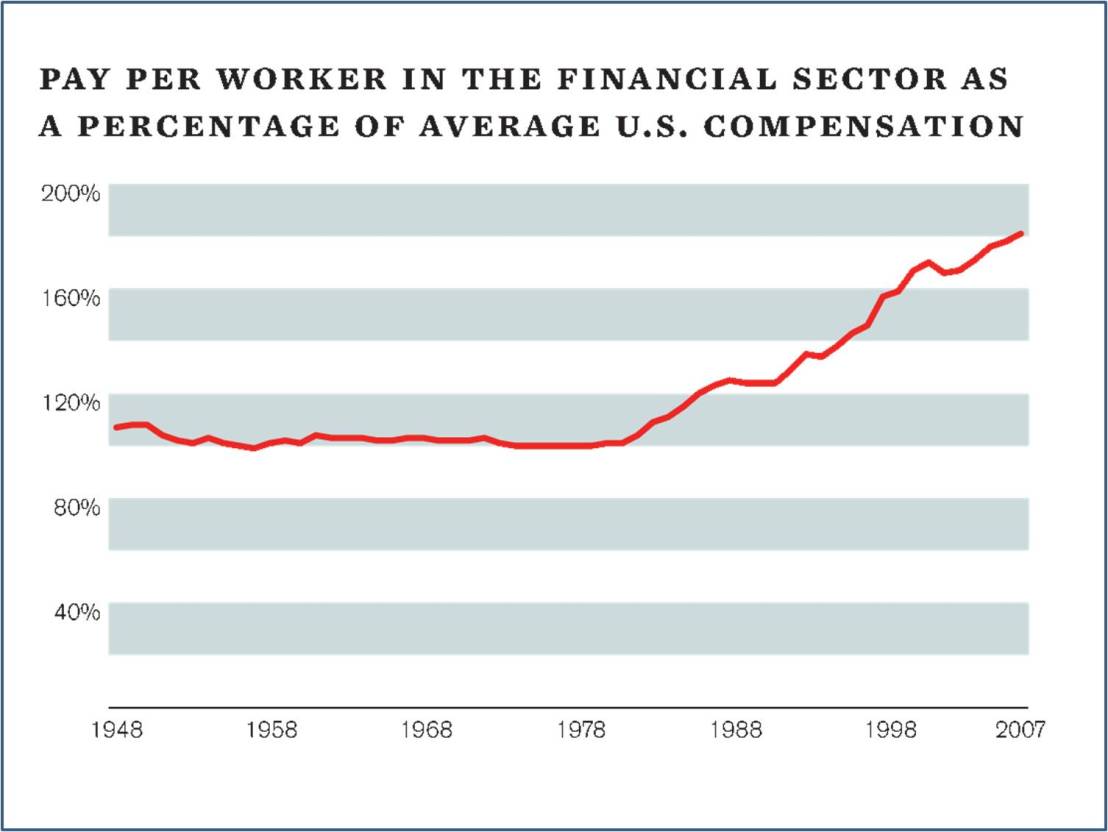The Return of Depression Economics, by Paul Krugman, is certain to be one of the most gifted books this holiday season; that’s what happens when you combine a Nobel Prize with a massive economic crisis and book with the word “depression” in the title. Here’s another reason to buy it for someone, as I found out: it’s so short you can read it in a couple of hours before wrapping it up.
The title of the book refers broadly to the recurrence of a need to deal with Depression-style economic threats, a theme that originally (in the 1999 edition) referred to the emerging markets crisis of 1997-98 and and the stagnation in Japan caused by the collapse of their housing bubble at the beginning of the 1990s. More particularly, however, it refers to the problems brought on by a collapse in economic demand – “insufficient private spending to make use of the available productive capacity,” as Krugman puts it. And it seems clear that that’s where we are today. The Case-Shiller index of housing prices reached its peak in real terms sometime in 2006, but the economy continued to grow until the end of 2007, even as housing prices fell significantly. Although the negative wealth effect of falling housing must have had some effect, people still wanted to spend. When the severe phase of the crisis began in September 2008, it was widely described as a credit crunch, meaning that reductions in the supply of credit were making it difficult for borrowers to get the money they needed, either for investment or consumption. Today, however, as Simon has said before, falling demand for credit may be just as big a problem. People just don’t want to borrow money any more, and if that’s the case, then increasing the supply of credit (by funneling cash into banks) will have only a limited effect, as we’ve seen. This is what Krugman finds most worrying about the current situation: the “loss of policy traction,” in which even dramatic moves by the Fed have only a limited impact ont he real economy.
He doesn’t quite come out and say it in so many words, but a lot of Krugman’s story has to do with what might be called psychology. He describes how economic crises may be the product of poor governmental policies and weak economic fundamentals – or they may be entirely the product of panics that have the very real effect of destroying wealth and setting countries back for years. Seen from this perspective, the scale of the current crisis may not have any proportional relationship to the fundamental flaws of our economy (or the global economy). It may simply reflect the fact that the scale, liquidity, and leverage of the global financial system have made it possible for panics to have much greater damage than they did in the past. (I know we’re still not dealing with anything on the scale of the Great Depression, but while the financial system was simpler then, it also had a simpler flaw – the lack of deposit insurance – and a simpler mistake – the failure to expand monetary policy in response to the downturn.)
The fact that you are reading this blog probably means that you would not learn a lot about the current crisis from Krugman’s book (especially if you’ve already read his article in The New York Review of Books), but you might learn something about the crisis of the 1990s, and the dynamics of currency crises. In 1997-98, multiple unrelated emerging market countries suffered panics and currency crises, and the response of “Washington” (the U.S. and the IMF) was to demand fiscal austerity – higher interest rates, lower government spending, higher taxes – in exchange for bailout loans. Now, of course, when large parts of wealthy country economies need to be bailed out, few people are calling for austerity; in the U.S., liberals and (most) conservatives differ only on whether the deficit should be increased through government spending or through tax cuts. Ten years ago, perhaps the austerity argument was defensible: in order for countries to gain credibility (and be able to pay back their loans), they needed to improve their government balance sheets. And at the time, the U.S. could be confident that reduced purchasing power in Thailand, South Korea, and Russia would have little effect on our economy. Today, however, the entire world is facing a steep downturn, and an economic stimulus will be most effective if it is roughly coordinated across countries, including emerging markets. So far the IMF appears to be using a gentler hand than last time, although so far most countries are attempting to steer clear unless absolutely necessary. The fact is that preventing an economic collapse in emerging markets will be an important of our recovery this time, both because of the importance of foreign trade and because of the amount of cross-border investment (think about the massive inflows into international stock funds in the past ten years).
In any case, it’s a quick read, and for those who are nervous about Krugman’s politics they make only a very brief entry near the end.
